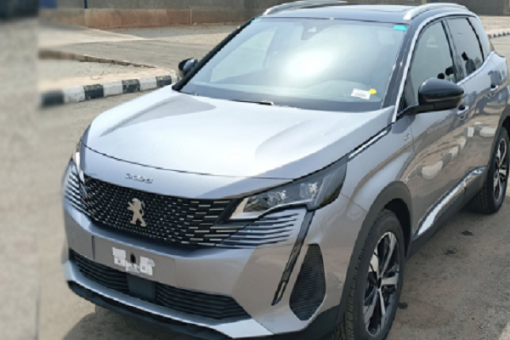 In a significant stride toward industrial growth and economic diversification, Dangote Peugeot Automobile Nigeria (DPAN) has officially commenced the local assembly of the Peugeot 3008 GT at its state-of-the-art assembly plant in Kaduna State. This development marks a major milestone in Nigeria’s automotive industry, reinforcing the country’s commitment to boosting local production, reducing vehicle import dependency, and creating job opportunities.
In a significant stride toward industrial growth and economic diversification, Dangote Peugeot Automobile Nigeria (DPAN) has officially commenced the local assembly of the Peugeot 3008 GT at its state-of-the-art assembly plant in Kaduna State. This development marks a major milestone in Nigeria’s automotive industry, reinforcing the country’s commitment to boosting local production, reducing vehicle import dependency, and creating job opportunities.
The announcement has generated widespread excitement across social media platforms such as Facebook, X (formerly Twitter), Instagram, and LinkedIn, with industry experts, business analysts, and car enthusiasts hailing the move as a game-changer for Nigeria’s automobile manufacturing sector.
 The Peugeot 3008 GT, a luxury SUV known for its sleek design, cutting-edge technology, and outstanding performance, is one of Peugeot’s flagship models globally. The decision to assemble it locally underscores Dangote Peugeot’s commitment to bringing premium automobiles to the Nigerian market while boosting the nation’s manufacturing capacity.
The Peugeot 3008 GT, a luxury SUV known for its sleek design, cutting-edge technology, and outstanding performance, is one of Peugeot’s flagship models globally. The decision to assemble it locally underscores Dangote Peugeot’s commitment to bringing premium automobiles to the Nigerian market while boosting the nation’s manufacturing capacity.
What This Means for Nigeria:
Local Production Advantage – Assembling the Peugeot 3008 GT in Kaduna means reduced costs and increased accessibility for Nigerian consumers.
Job Creation – The project will create direct and indirect employment opportunities, from factory workers to logistics and dealership networks.
Technology Transfer – The assembly process will facilitate skill acquisition and technological advancements in Nigeria’s automotive sector.
Boost to Local Economy – The initiative aligns with Nigeria’s industrialization goals and the government’s Automotive Industry Development Plan (NAIDP).
The Peugeot 3008 GT is a top-tier SUV designed for luxury and high performance. Some of its standout features include:
1.6L turbocharged engine for enhanced fuel efficiency and power.
Advanced i-Cockpit interior design with a high-tech digital dashboard.
Premium safety features, including lane departure warning, adaptive cruise control, and 360-degree parking assistance.
Eco-friendly driving mode, reducing emissions while maintaining optimal performance.
The news of Peugeot 3008 GT’s local assembly has sparked excitement on social media, with Nigerians expressing their views on the impact of this initiative.
@NigeriaAutoBuzz (X): “Great news for Nigeria’s automotive industry! Assembling the Peugeot 3008 GT locally means more job opportunities and a step toward reducing import dependence.”
@BusinessNaija (LinkedIn): “Dangote Peugeot is setting a new benchmark for Nigeria’s auto industry. This is the kind of investment that drives economic growth!”
@LuxuryCarsAfrica (Instagram): “The Peugeot 3008 GT is a masterpiece! Can’t wait to see it dominate Nigerian roads! #MadeInNigeria”
However, some users raised concerns about affordability, urging the company to ensure that pricing remains competitive to make the 3008 GT accessible to middle-income Nigerians.
The Nigerian government has been vocal about its push for local vehicle production, and the commencement of the Peugeot 3008 GT assembly aligns with the National Automotive Industry Development Plan (NAIDP). The policy encourages foreign and local automakers to invest in assembling vehicles in Nigeria, reducing importation and boosting local content development.
To further support the sector, stakeholders are calling on the government to:
Reduce import duties on raw materials for vehicle assembly.
Provide incentives such as tax holidays for manufacturers.
Enhance infrastructure, including stable electricity and better transport networks, to facilitate production.
The launch of Peugeot 3008 GT assembly in Kaduna marks an important step toward making Nigeria a major hub for automobile production in Africa. With Dangote Peugeot leading the charge, the country could soon witness more locally assembled luxury vehicles, increased industrial growth, and enhanced job opportunities.
However, challenges such as cost, production scalability, and market acceptance will play a key role in determining the long-term success of this initiative.





